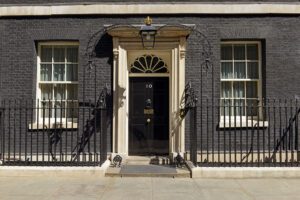 The NHS is in a “critical state, but the vital signs are strong”, according to the Darzi report into the state of the UK’s health service, published today.
The NHS is in a “critical state, but the vital signs are strong”, according to the Darzi report into the state of the UK’s health service, published today.
The Independent Investigation of the National Health Service in England report was commissioned by the Secretary of State for Health and Social Care, Wes Streeting earlier this year.
Conducted by Professor Ara Darzi, the investigation has concluded that the NHS is “in serious trouble”.
In a response to the report, Prime Minister Kier Starmer said that the public have a right to be angry. He added that the NHS is broken, but not beaten.
He announced three “big shifts” are planned over the next 10 years to improve the state of the NHS. They include investing more in community care rather than hospitals.
However, Epilepsy Action has stressed that historically, neurology services have been “severely underfunded”.
‘Imperative we turn the situation around’
 The Darzi report highlighted a number of issues. It referenced ‘ballooning’ wait times, health inequalities in areas like maternity care, and an A&E in an “awful state” which could be contributing to an additional 14,000 deaths a year.
The Darzi report highlighted a number of issues. It referenced ‘ballooning’ wait times, health inequalities in areas like maternity care, and an A&E in an “awful state” which could be contributing to an additional 14,000 deaths a year.
The investigation found that people are struggling to see GPs and waiting lists for community care and mental health services are “surging”. Meanwhile, the health of the nation has deteriorated, the report added.
The report found that the NHS is “starved of capital”, is still feeling the effects of the pandemic and the austerity of the 2010s.
Prof Darzi also concluded that the patient voice is not loud enough, with patients’ concerns not being heard or acted upon.
Despite all of this, Prof Darzi said the “vital signs are strong”.
He said: “The NHS has extraordinary depth of clinical talent, and our clinicians are widely admired for their skill and the strength of their clinical reasoning.
“Our staff in roles at every level are bound by a deep and abiding belief in NHS values and there is a shared passion and determination to make the NHS better for our patients. They are the beating heart of the NHS.
“It is not a question… of whether we can afford the NHS. Rather, we cannot afford not to have the NHS, so it is imperative that we turn the situation around.”
The government’s three ‘big shifts’ programme to lead to the major recovery of the NHS include moving from hospital to community care, becoming more digital and focusing more on preventing sickness rather than treating it.
‘More support for people with long-term conditions’
Epilepsy Action is campaigning for epilepsy to be prioritised within health and social care. The organisation says the UK has one of the worst ratios of neurologists to patients among high income countries.
There are 1.1 full-time-equivalent neurologists per 100,000 people in England. Both France and Germany have one consultant for every 25,000 people or fewer.
Also, guidelines recommend that there should be nine epilepsy specialist nurses per 500,000 people. But in England there are two per 500,000.

Alison Fuller, director of Health Improvement and Influencing at Epilepsy Action, said: “The findings from the Darzi report are disappointing but not surprising. It’s a harsh truth that the NHS has faced major challenges since way before the pandemic.
“We welcome aspects of the government’s vision such as getting more people with long-term conditions into work, and empowering community care. At the same time, we still think there is investment needed into hospitals when it comes to specialist workforces, and it’s concerning to hear this doesn’t seem to be a part of the 10-year plan.
“Our country’s neurology services have historically been severely underfunded. There just hasn’t been enough resource. Lack of access to specialists has a major impact on people with a long-term condition like epilepsy, who are already faced with a life-changing diagnosis and need all the support they can get.
“There are huge regional disparities in the numbers of specialists available in our country, and even the better-served areas are not keeping up with the rest of Europe.
“We know there are major NHS-related issues that need addressing, including improving A&E waiting times and investing in digital technologies. But we were hoping for more support for people with long-term conditions.
“As a member of the Neurological Alliance, we have supported calls for a Neuro Taskforce to address the common problems faced by people affected by neurological conditions and make their voices heard.
“The lack of mental wellbeing support, delays to treatment and care, and a lack of information and support at diagnosis. These are still major issues. They are still very real for people with epilepsy. And they still need resources to be addressed.”
What have been your experiences with NHS services? What do you think of the report and the government’s plans? Get in touch at: campaigns@epilepsy.org.uk

